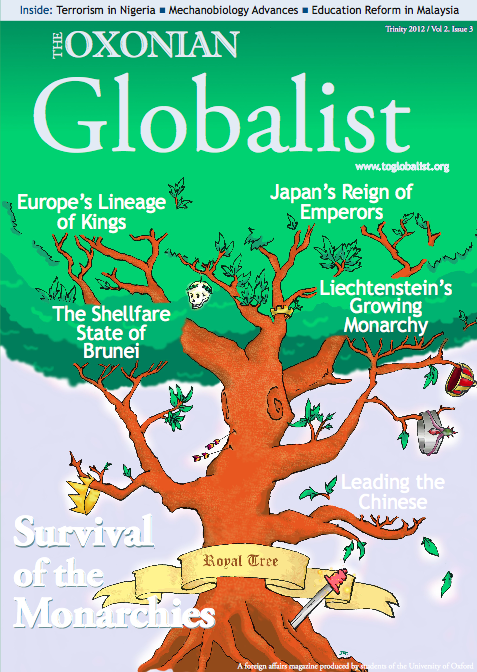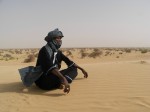
Boko Haram, Nigeria’s homegrown terrorist group has expanded and gained prominence since 2009. Photo by AK Rockefeller via Flickr.
Less than a year ago, I wrote that the Nigerian Islamist militant group Boko Haram, was “visibly disorganised” with an inconsistent message. I also wrote that Mali would have plenty of help from regional and international actors in winning back its north from separatist Islamist rebels. However, I could never have predicted that the two issues would come together as devastatingly as they did last month, when gunmen on motorcycles kidnapped seven French tourists in Cameroon, close to the Nigerian border.
Boko Haram was the named culprit, purportedly acting in retaliation to the French invasion of Mali a few weeks back, that aimed to root out terrorists and help the government recapture the north. The group’s latest YouTube video is truly terrifying, as we see the captives, including four children, surrounded by masked men holding rifles in a small tent in northern Nigeria.
Although Boko Haram has existed for over a decade while the conflict in Mali is only about a year old, the connections between the two are not entirely new. In September 2011, the US warned that three burgeoning terrorist groups in Africa – Boko Haram, al-Qaeda in the Islamic Maghreb and al Shabab – were cooperating and coordinating their attacks in the Sahel region. Moreover, since the Malian government collapsed in March last year, the country’s north has become an open training and recruitment ground, as well as an arms supply route for many groups, Boko Haram included.
This hostage crisis, following closely on the heels of a similar situation in Algeria, has worried many within West Africa and in Western capitals around the world. There is no easy way to tackle this issue, but one thing is certain: the current media and governmental focus on Boko Haram is manifestly misguided. The French government has pointed the finger at the group, leading the media to analyse the situation through the lens of who Boko Haram is and what they have done before, as if Boko Haram were a single unified entity. The problem with this approach is that Boko Haram is not one distinct group, and thus labelling it as the enemy tells us close to nothing about who these hostage-takers are, what they want and what they will do next.
A different Boko Haram?
There are many clues to suggest that the Boko Haram which has detained these hostages is not the same Boko Haram that has terrorised Nigerian churches, mosques and schools in recent years. For starters, the video is different from others released previously by the group in that the kidnappers speak Arabic, rather than Hausa, the main indigenous language of northern Nigeria. More importantly, Boko Haram has long been a very local group, with attacks focused within Nigeria and more specifically in its northern half. Its goals, while terribly vague, have always been local, such as establishing Sharia law in Nigeria or undermining the central government. The closest the group came to an “international” attack was the bombing of the United Nations headquarters in the country’s capital, Abuja, in 2011.
Moreover, Boko Haram has never before been associated with the kidnapping of Westerners. Alleged group members even denied their organisation’s involvement in the crisis when speaking to Nigerian journalists soon after. Evidently, the group does not have one appointed spokesperson and anyone can claim to be acting in its name.
Despite widespread claims in the media that the kidnapping was in retaliation for the French military campaign in Mali, it is only subtly referred to in the video, when one masked gunman claims that “the president of France” has “waged a war against Islam.” He demands that the president of Cameroon releases Boko Haram members imprisoned in that country, despite the fact that there are no reports of any being held there. The gunman also addresses President Goodluck Jonathan of Nigeria, warning, “we will establish the Islamic state of Nigeria”. This sounds more like the original Boko Haram, but the rest simply doesn’t add up. The Nigerian government is participating in the Malian operation but this hardly constitutes a sufficient reason to attack the French.
Looking beyond the label
The current counter-terrorism focus on Boko Haram makes it clear that despite over a decade of waging the global “war on terror”, we have still not managed to fully adapt our tactics to effectively combat the stateless guerrilla and terrorist groups that have become our most deadly modern enemies. Certainly, we are now better able to understand groups like al-Qaeda, but Boko Haram poses challenges at a whole new level. It may be fuelled by similar ideology, but it lacks any measure of cohesiveness, inter-connectedness or tactical parallels across cells. In fact, its “cells” may well be separate groups in their own right.
These groups – some of which splintered from the original group and others which were never related to it – ride on the name of Boko Haram because it strikes fear in the heart of many, both in and outside the region. They are opportunistic, which means that holding a French family hostage may be as much about making a militant Islamist statement as about collecting much needed ransom money.
The greater message to take from this terrible situation is not so much to identify which particular group these thugs belong to – unless we can identify the particular splinter group and the scope of their operations – but to recognise that potentially disparate bands of young men in this volatile region have the resources and the guts to carry out operations of this scale. Addressing this problem is going to require an examination of root causes – poverty, unemployment and corruption, to name a few – rather than glossing over them, as a label like “Boko Haram” so easily permits.









